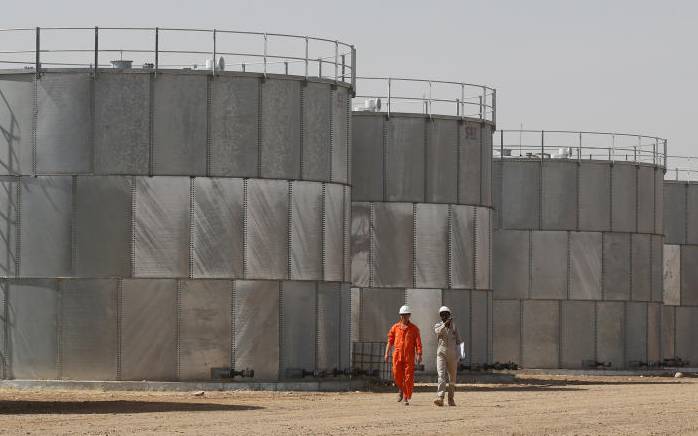×
The Standard e-Paper
Home To Bold Columnists

Workers walk past storage tanks at Tullow Oil's Ngamia 8 drilling site in Lokichar, Turkana County, Kenya, February 8, 2018.
Construction of a crude oil pipeline from Turkana County to Lamu Port is expected to create 7,000 jobs for skilled oil and gas professionals as well as unskilled labourers.